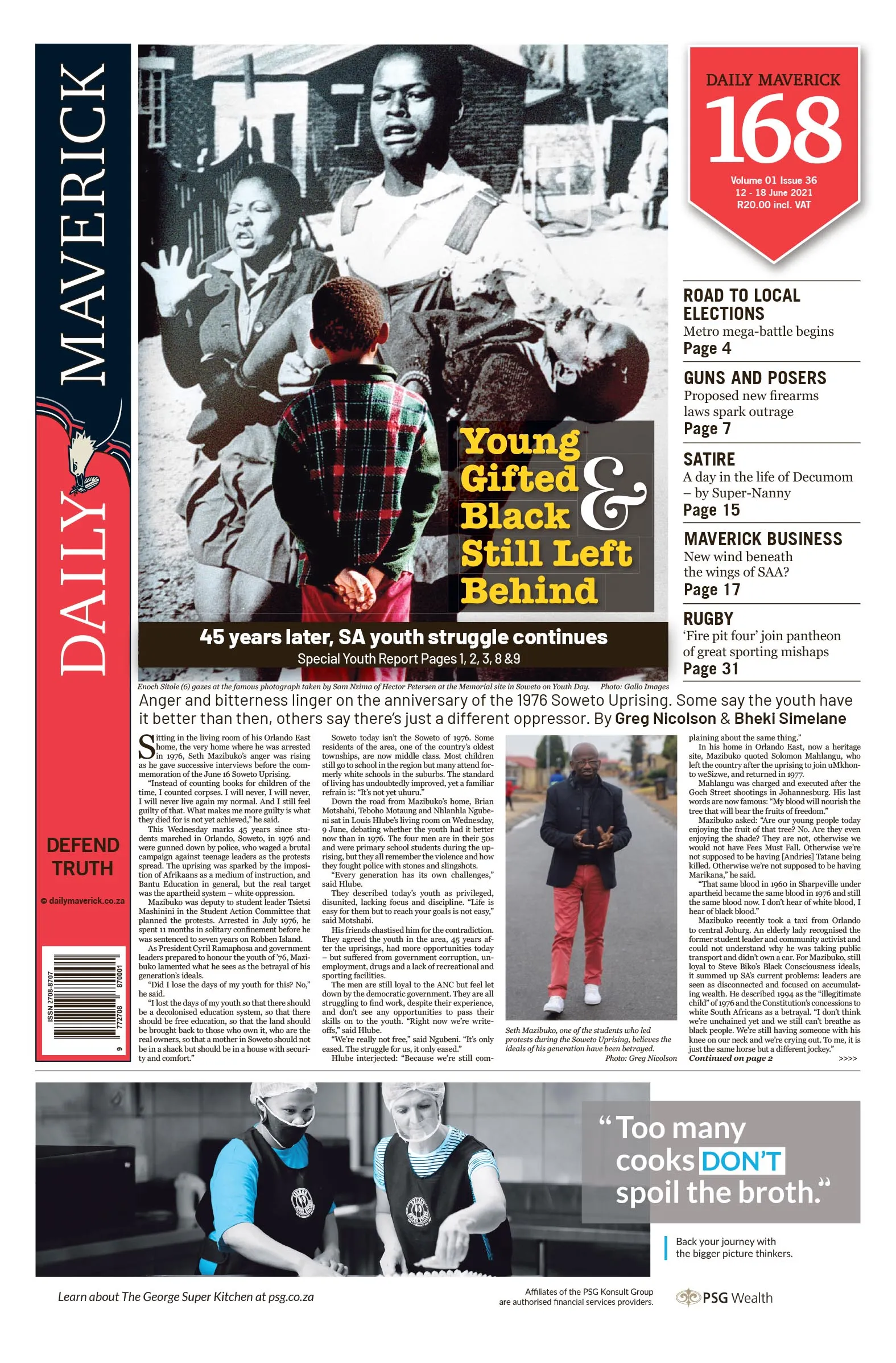Dear DM168 readers,
First published in the Daily Maverick 168 weekly newspaper.
On 16 June 1976, I was 11 years old. In the evening, I sat with tears in my eyes, watching SABC TV news bulletins showing the police shooting schoolchildren, many as young as I was then. It was these visuals of children screaming, crying and dying for the right to be taught in a language they spoke and understood, that brought home to me the true horror of apartheid.
I resolved there and then that I had to play a part in ending it.
When I voted for the first time in 1994, after spending more than a decade of my youth in marches, boycotts, meetings, protests and rallies, I thought the inequities that split South Africa into majority black poverty, landlessness and menial employment, and minority white wealth, land ownership and skilled employment, would finally come to an end. That we would one day all be equal and that the children of Soweto who died on that fatal day would not have died in vain.
This week, for our front-page story, Bheki Simelane and Greg Nicolson returned to the streets and schools of Soweto where those pupils protested on 16 June 1976. While much has changed and improved, sadly, you will have read that they found that much has not.
The team of Maverick Citizen journalists who have interviewed young unemployed people put faces and heart-breaking stories to the alarming statistic our country faces of more than 70% youth unemployment. Their stories speak of the desperation that the majority of South Africans feel.
Today, I feel the same way I felt on 16 June 1976. We have to find a way of ending the inequality between minority wealth and majority poverty-stricken, but “what can be done?” What can we do to give our young people a fighting chance of a future? If we think of ourselves as intrinsically connected to each other as fellow human beings, not liberals and socialists, conservatives and radicals, black, white, coloured and Indian, but people who live side by side in a terribly divided country, what can business, government, churches, NGOs and ordinary citizens do to solve the youth unemployment crisis?
If you know of any ventures that are tackling youth unemployment in innovative ways, please write to me at [email protected] so we can publish their stories and perhaps inspire others. If you have any innovative ideas, feel free to share them and I will publish them in the What Is To Be Done section of our letters page.
Yours in the hope that we get to know better and do better every day. DM168
This story first appeared in our weekly Daily Maverick 168 newspaper which is available for free to Pick n Pay Smart Shoppers at these Pick n Pay stores.


















 Become an Insider
Become an Insider
What is to be done: fundamentally alter our education system so that it rewards innovation and entraupeneurship. No more half a million people studying Shakespeare in matric. No more BS life orientation in matric. Much more woodwork, technical drawing, coding, business studies, accounting etc.
I agree with Fanie, why teach Shakespeare to those that want to be artisans. Let’s split our education into a fully academic matric for those that want to pursue studies to become professionals and a more practical education for those that want to train for the real world or perhaps won’t have any opportunity for further study.